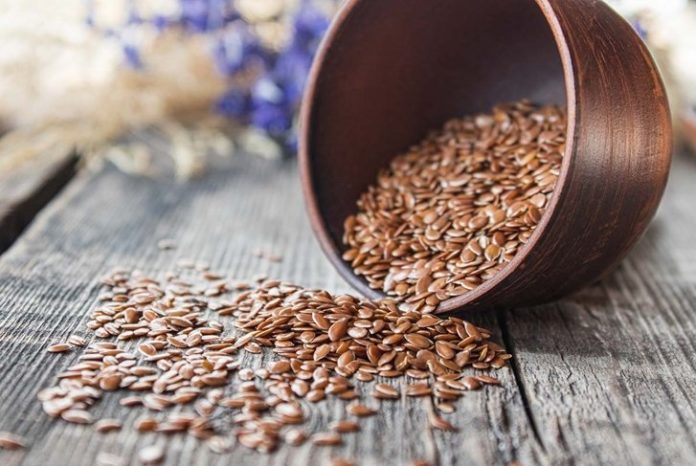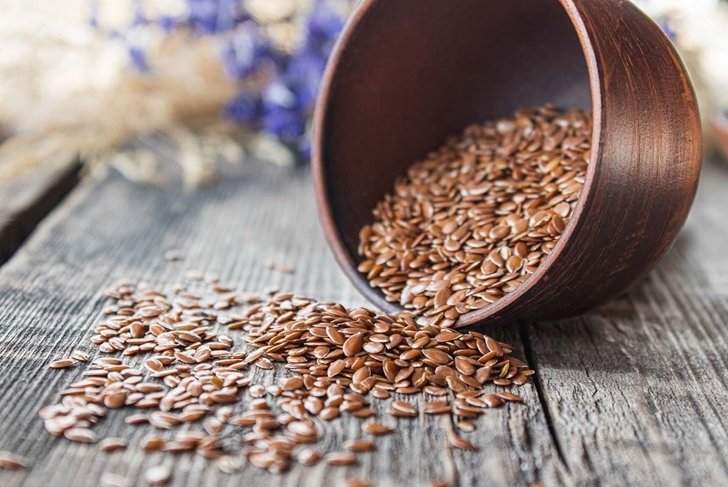
Flaxseed has been prized by civilizations for thousands of years, and it’s easy to see why. It’s rich in antioxidants and omega-3 fatty acids and can do everything from support your gut to possibly reduce the risk of cancer. Believe it or not, King Charlemagne felt so passionately about the health benefits of flaxseed that he required his subjects to consume them daily.
01
Supports gut health

Flaxseed has a lot of fiber. Flax skin is so fibrous, it has been used to make linen and paper for centuries. Flaxseed has soluble and insoluble fiber, and while both are crucial to maintaining our health, insoluble fiber keeps our stomachs in check and running smoothly. The insoluble fiber in flaxseed can help things keep moving in your intestines and prevent constipation while also improving hemorrhoids and fecal incontinence.
02
Lowers cholesterol
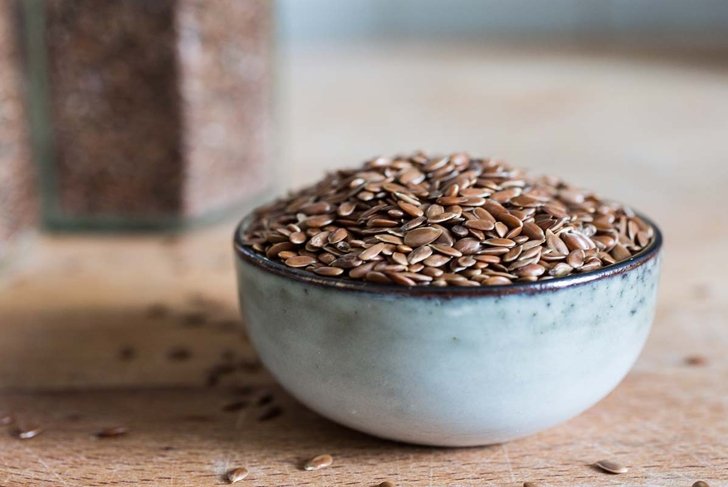
Flaxseed’s fiber content doesn’t just support our gut. Its soluble fiber binds to cholesterol particles in our intestines so the body doesn’t absorb them. Additionally, one study showed a significant decrease in LDL (bad) cholesterol in rats after they consumed flaxseed meal. While LDL cholesterol was lowered, HDL (good) cholesterol remained unchanged. Since high levels of LDL cholesterol increase the possibility of heart attacks and stroke, it’s important to keep LDL cholesterol at bay.
03
Helps manage diabetes
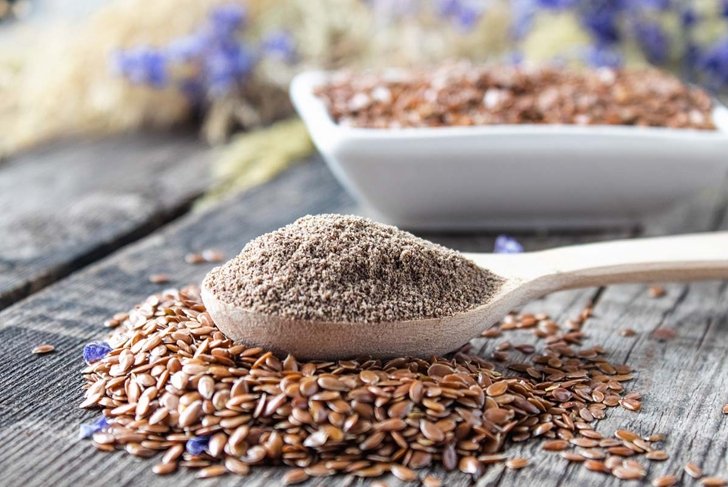
The same soluble fiber in flaxseed that’s responsible for lowering cholesterol may also help mitigate diabetes. But that’s not the only way flaxseed can protect our bodies against diabetes. Flaxseed’s high levels of lignans improve glycemic control. In one study, diabetic women were given flaxseed powder for two months. Glucose levels decreased between 7.9 percent and 19.1 percent. The larger the portion of powder, the lower the glucose levels.
04
Great source of protein
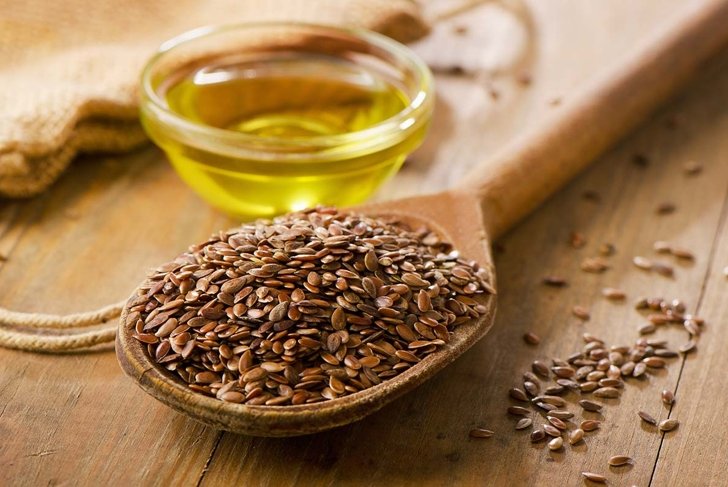 Protein is an important nutrient. It fuels our bodies, builds muscle, and supports our immune system. While meat is a great source of protein, too much of it can lead to heart disease and other serious illnesses. Additionally, vegetarians and vegans need plant-based protein sources. Flaxseed provides high-quality protein with significant levels of three amino acids—arginine, aspartic acid, and glutamic acid. Plant-based protein sources can be just as filling as meat-based sources, making flaxseed a viable protein choice.
Protein is an important nutrient. It fuels our bodies, builds muscle, and supports our immune system. While meat is a great source of protein, too much of it can lead to heart disease and other serious illnesses. Additionally, vegetarians and vegans need plant-based protein sources. Flaxseed provides high-quality protein with significant levels of three amino acids—arginine, aspartic acid, and glutamic acid. Plant-based protein sources can be just as filling as meat-based sources, making flaxseed a viable protein choice.
05
Aids weight management
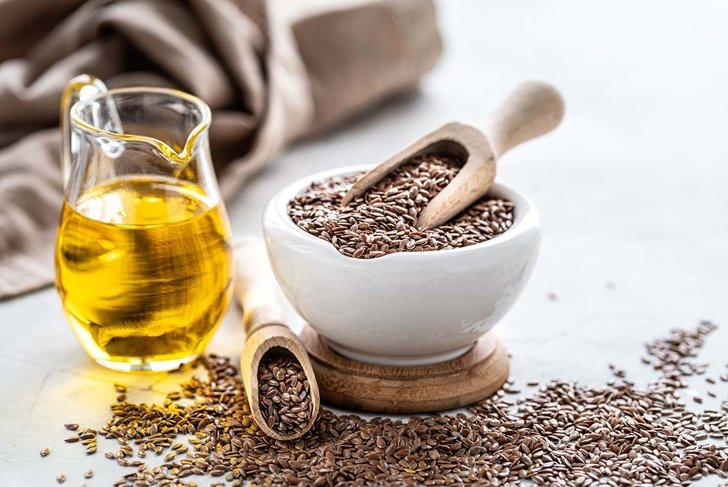
Looking for a way to squash your snacking? Flaxseed can reduce your appetite and help you manage your weight. In one study, participants reported feeling significantly satiated after consuming flaxseed. Researchers attribute these results to flaxseed’s high fiber content. While it’s important to eat a range of healthy foods and exercise, adding flaxseed to your diet is one more step you can take to maintaining a healthy weight.
06
Reduces inflammation

There’s a reason inflammation is a hot topic these days. Chronic inflammation is linked to a lot of diseases, such as cancer, heart disease, and arthritis. Flaxseed is one of the richest sources of an omega-3 fatty acid called alpha-linolenic acid (ALA), which may reduce inflammation. ALA has successfully decreased inflammatory markers in rats and humans. Another flaxseed component, lignans, may also reduce inflammation, though more research is needed.
07
Improves menopausal symptoms
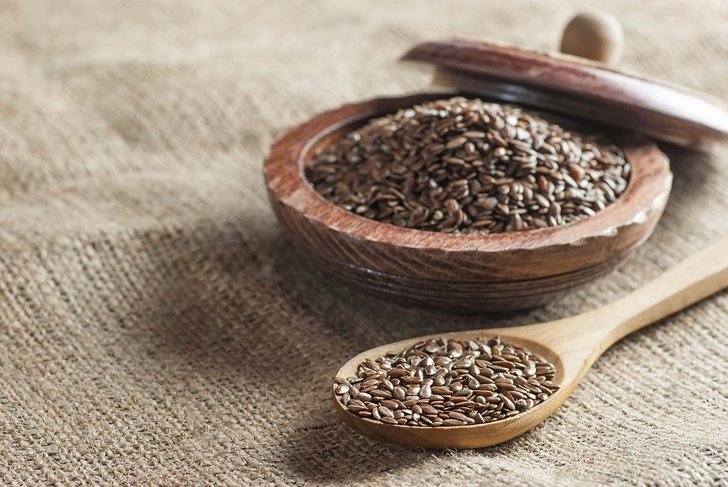
Menopause is a natural part of the aging process, but symptoms can sometimes be hard to manage. Fortunately, flaxseed may be able to help improve the way you feel. A study of 140 menopausal women reported reduced symptoms after consuming flaxseed for three months. Eating ground flaxseed also reduces constipation, another common symptom of menopause.
08
Prevents heart disease
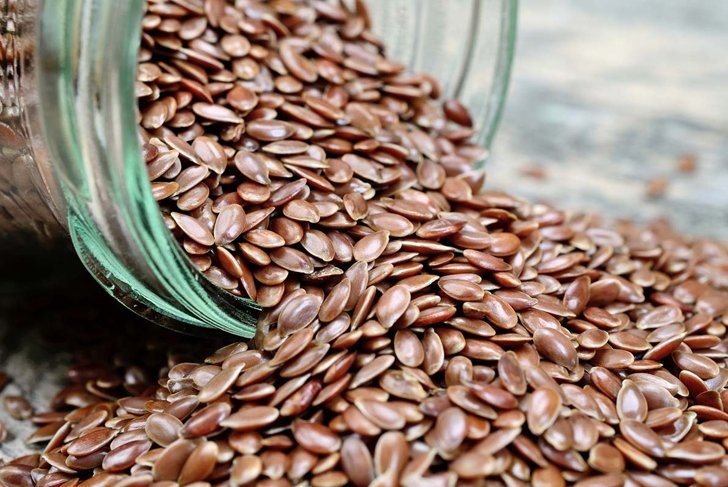
Heart disease is a prevalent health issue and one of the leading causes of death worldwide. By maintaining a healthy diet, you can lower your risk of developing heart disease. Flaxseed has many properties that make it a heart-healthy food. Its high fiber content helps reduce inflammation and lower high blood pressure, two conditions linked to heart disease. Flaxseed also has omega-3 fatty acids and lignans, both of which are known to protect against heart disease.
09
Contains a powerful omega-3

Omega-3 fatty acids may prevent heart disease, but that’s not their only claim to fame. They may also decrease the effects of and possibly prevent other diseases, such as diabetes and rheumatoid arthritis. Our bodies don’t make these essential fats naturally, so we must attain them through food. Flaxseed’s omega-3 fatty acid, alpha-linolenic acid (ALA), may reduce the chance of stroke, bone fracture, depression, and cardiovascular disease.
10
Reduces the risk of cancer
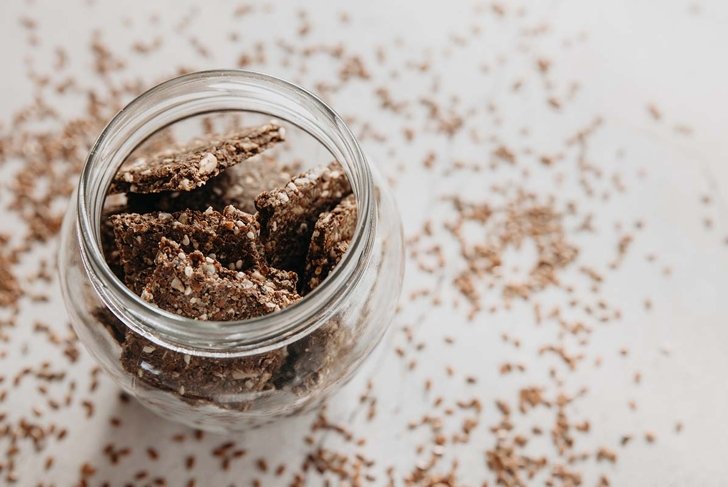
As if there weren’t already enough reasons to add flaxseed to your diet, this one may be the most profound. Lignans, plant compounds found in flaxseed, may protect against hormone-sensitive cancers. Studies show that flaxseed plays a significant role in reducing the possibility of breast cancer in postmenopausal women and prostate cancer.





























